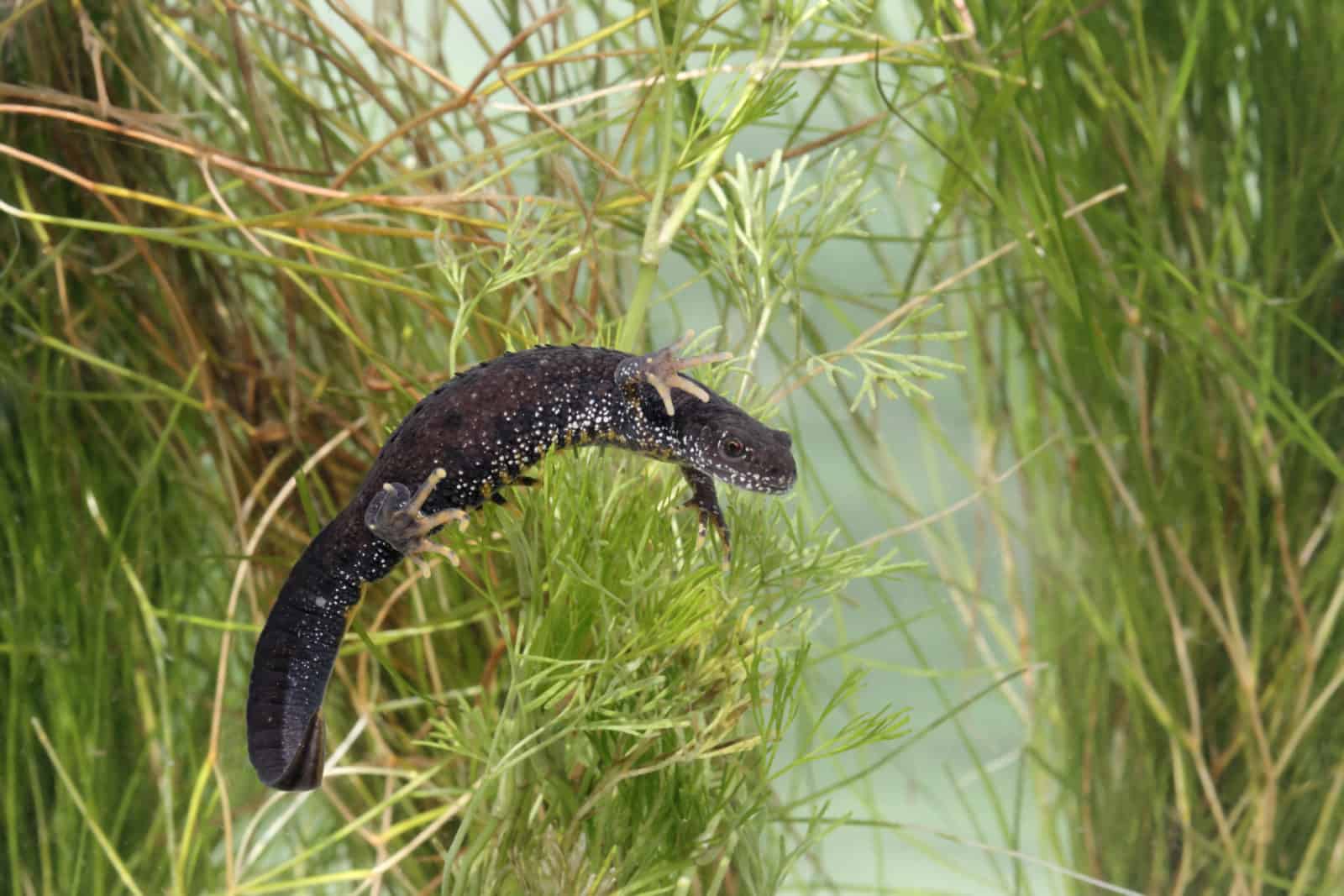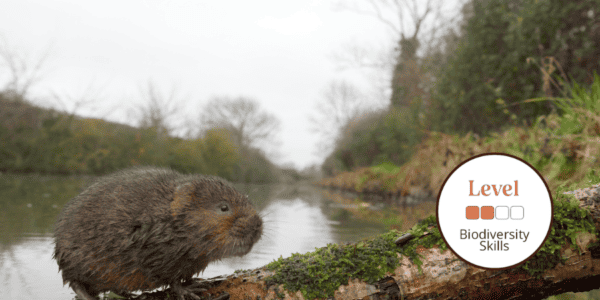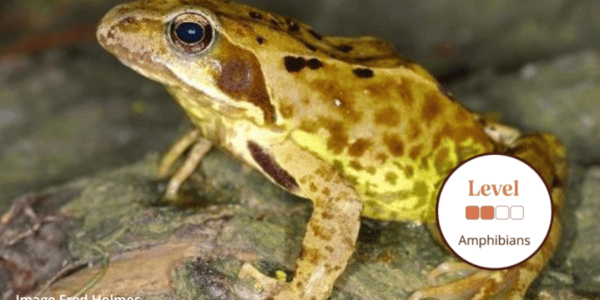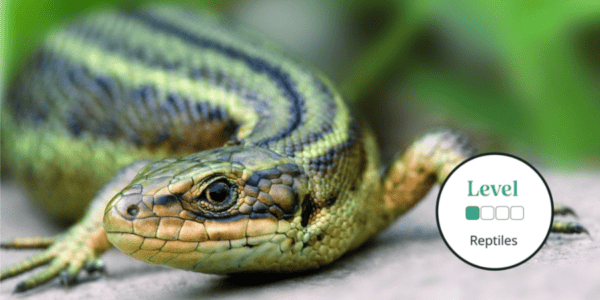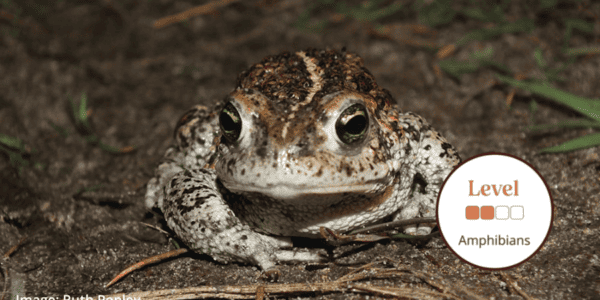This course is now fully booked.
Sign up for our newsletter to hear about the next run of this course
Find similar courses here
This advanced course will cover great crested newt identification and ecology, survey techniques, the Habitat Suitability Index (HSI) and will include opportunities to practice netting, bottle trapping, torch and egg searching.
This course provides a balance of classroom and field-based sessions for those interested in acquiring a great crested newt licence.
Over recent years the subject of great crested newt licensing has been rapidly evolving and there is now a range of approaches that may be applicable which will be explored and discussed in this advanced course. We will also discuss eDNA sampling procedure. There will be plenty of opportunities to explore and survey for great crested newt allowing you to put your new knowledge into practice, with the support and guidance of our expert tutor.
Please note – Natural England will accept an attendance certificate from this course in lieu of one reference for a great crested newt survey licence (but you will still need an additional reference). See https://www.gov.uk/government/publications/reference-to-support-a-protected-species-licence/protected-species-licences-guidance-on-getting-references-to-support-applications for more information.
This level 4 course is next in the series of our Amphibian framework and is a perfect progression from our level 2 and 3 Amphibian courses
Your course takes place at Rixton Claypits. Once a clay extraction site, it is now a Site of Special Scientific Interest (SSSI) and a Special Area of Conservation (SAC). It is of national importance for the great crested newt, and it supports one of the largest populations in the country.
PLEASE NOTE the course fee is for tuition only. There is no accommodation or meals provided with this course.
Bookings will close if course capacity is reached
The course is for ecologists, rangers or land managers who wish to undertake great crested newt surveys on a professional basis
Who Should Attend?
Nature enthusiasts, Students, Early career ecologists and consultants, Citizen scientists, Volunteer surveyors
Knowledge Level
Advanced. Level descriptors can be found on the following webpage: Framework and Course Level Descriptors
Prior Knowledge
Knowledge of British amphibian identification and ecology is beneficial for this course
What will be covered during this course?:
-
- Species identification
- An introduction to legislation
- The value of great crested newt records
- Great crested newt ecology
- Natural England survey methods, including opportunities to practice netting, bottle trapping, torch and egg searching
- Other survey methods, including eDNA and Dewsbury trapping.
- Survey planning
- Habitat Suitability Index for great crested newts
By the end of the course, you will be able to:
-
- Explain current legislation for great crested newts
- Confidently identify and describe the ecology of a range of newt species with a particular focus on great crested newts
- Describe and carry out a range of survey techniques for sampling for great crested newts
- Share this knowledge with friends, family, and fellow volunteers
This is a place-based training course from the Field Studies Council, including a balance of classroom-led learning to impart important knowledge and irreplaceable hands-on outdoor learning opportunities to give individuals skills and confidence. After attending this course, you may like to progress your learning within amphibians with further relevant courses or branch out into other areas of the animal kingdom. The Field Studies Council offers both online and in person courses, so you can choose the learning style that suits you best.
The course gives you the opportunity to immerse yourself in a new subject and acquire novel skills. Our fantastic tutor will combine the use of classroom-led learning and outside learning opportunities to give individuals the skills and confidence to learn more about amphibians.
-
- See the ‘Example Timetable’ and ‘What’s Included’ sections below for more information about this course.
- Upon booking, you will need to provide individual details of all attendees
- Please email [email protected] if you have any questions.
Group Bookings Made Easy
If you have a group of 10 or more individuals wanting to complete one of our courses, our team are available to discuss your options – from discounts to private team courses.
-
- Discounted rates
- Privately run courses for your group
- Bespoke courses developed specifically for your needs
Click here to find out more
About our partner, ARC
The Amphibian and Reptile Conservation Trust (ARC) was established in June 2009. ARC was created around the core of the Herpetological Conservation Trust (HCT), in response to the wider needs of herpetofauna conservation, providing the UK focus for all aspects of reptile and amphibian conservation. ARC continues to focus on the UK Biodiversity Action Plan, creating an extensive network of nature reserves, coordinating monitoring programmes and volunteer networks and developing an effective role in advocacy both within the UK and Europe.
Tutor: David Orchard
David Orchard has completed a PhD at the University of Salford on great crested newts and their use of farmland. He has carried out numerous great crested newt surveys on a consultancy basis and has been involved with great crested newt survey training since 2006. He is also the county recorder for amphibians and reptiles in Lancashire.Covid Measures
In order to keep our customers and staff safe, we ask that anyone attending our centres:
- Wears a face covering when in shared indoor space (unless exempt).
- Maintains social distancing.
- Cleans their hands regularly.
- Takes a Covid-19 test before they arrive.
Book with Confidence
We understand the difficulties of making plans in the current situation when guidelines continue to change, and insurance conditions are being tightened. In response, we will continue to offer additional flexibility. Find out more here
Example Timetable
Example Timetable
This timetable is subject to change but should give a clear outline of what to expect
-
- Please arrive in time for the course to start promptly at 11:00am
- The course will end at 8:30pm
| 11:00am | Introductions |
| 11:15am | Classroom session covering:
Site walk |
| 1:00pm | Lunch – not provided |
| 1:30pm | Classroom session on survey planning |
| 2:00pm | Field session - Natural England survey methods |
| 4:15pm | Break - drinks provided |
| 4:30pm | Classroom session – Habitat Suitability Index for great crested newts |
| 5:30pm | Break - meal not provided |
| 6:30pm | Field session - other survey techniques and torch searching session |
| 8:00pm | Classroom plenary and final questions |
| 8:30pm | End of course |
Please note accommodation, food and an evening meal are not included
What's Included
The course has been carefully created by expert tutors and educators to help you continue to build and develop your knowledge and apply it within the field surrounded by like-minded individuals.
The course includes:
- Classroom learning covering the theory of the species
- Field excursions to apply new knowledge
- Expert tuition for which the FSC is renowned
- Clear objectives and progression
- Tailored certificate of completion
You can rest assured that the absolute best content from an expert in environmental education will be provided. In choosing an FSC course, you will be joining thousands of people who learn with us each year.
Before You Attend
What to Bring:
- Wellies, waterproofs, clipboard, paper, pen and a high-powered torch (if you have one)
- An empty 2 litre lemonade/coke bottle.
- Tea and coffee will be provided during the day but please bring a packed lunch.
- There will be an opportunity for an evening meal at a reasonably priced local pub, the cost of which is not included in the course fee.
You may wish to purchase the FSC Guide to Reptiles and Amphibians to enhance your experience
There will be a member of staff with first aid training and access to a first aid kit on site. If you have special medical or access requirements, please let us know as soon as possible so we can plan the course.
Arriving for your course
By car from Warrington - follow Manchester Road (A57) out of Woolston, across both M6 roundabouts for approximately one mile. Continue past the end of Moat Lane and about 400 yards on the left is the visitor centre. 120 yards further along on the left is the car park. If you pass Chapel Lane (on the left) you’ve gone too far. Please note that the visitors centre is set back 30m from the road and is not well signposted, so it is easily missed. From Cadishead- follow Liverpool Road (A57) through the traffic lights at Warburton Bridge Road and continue for another 420 metres. The car park is before the visitor’s centre on the right between Chapel Lane and Moat Lane.
Please park in the main car park, not in front of the visitors centre.
By bus – The 100 bus from Warrington stops on Manchester Road, near Moat Lane.
For more information about the Rixton Claypits Local Nature Reserve please visit:
Sorry this course has ended

